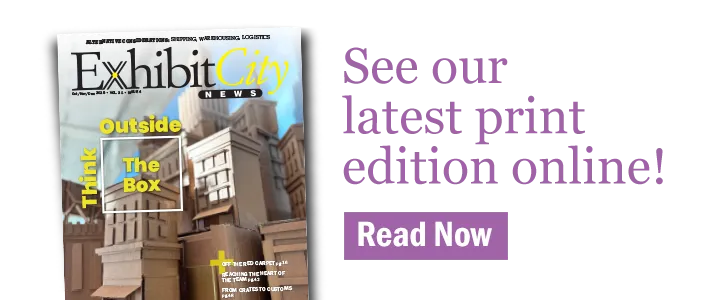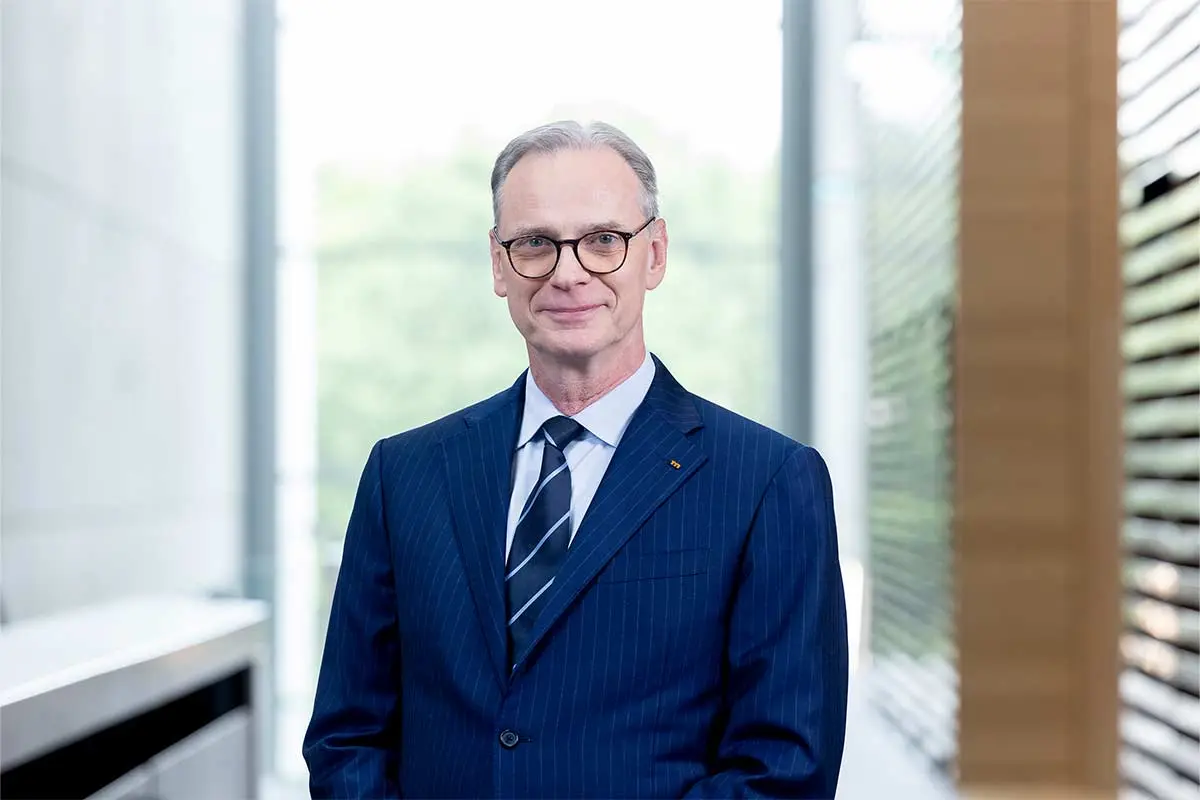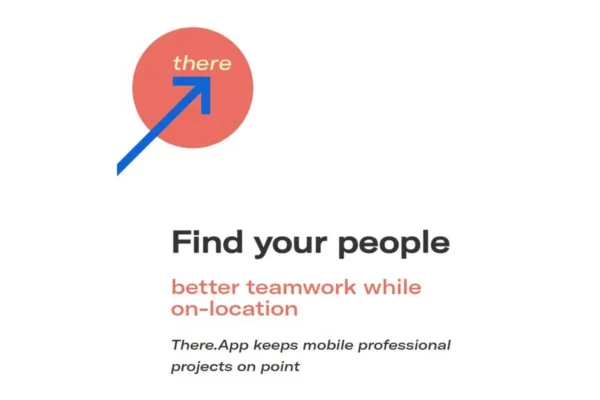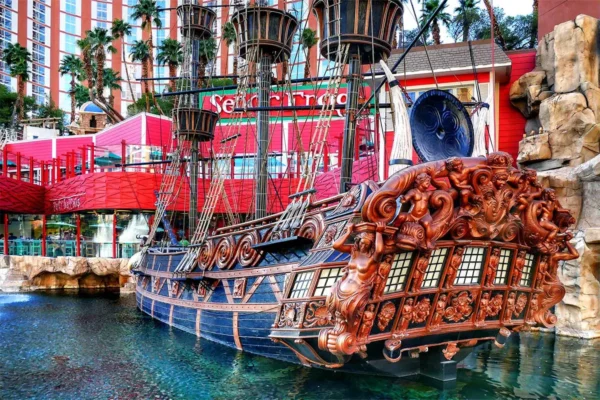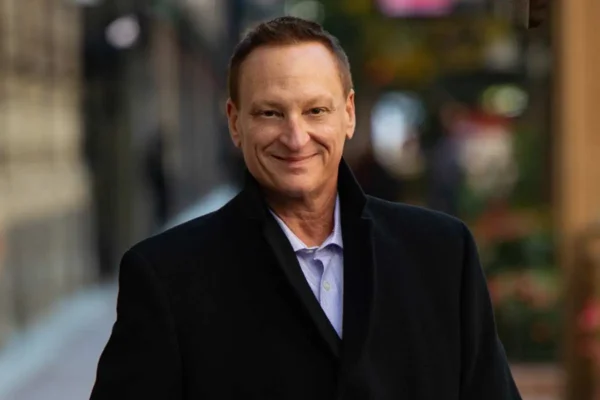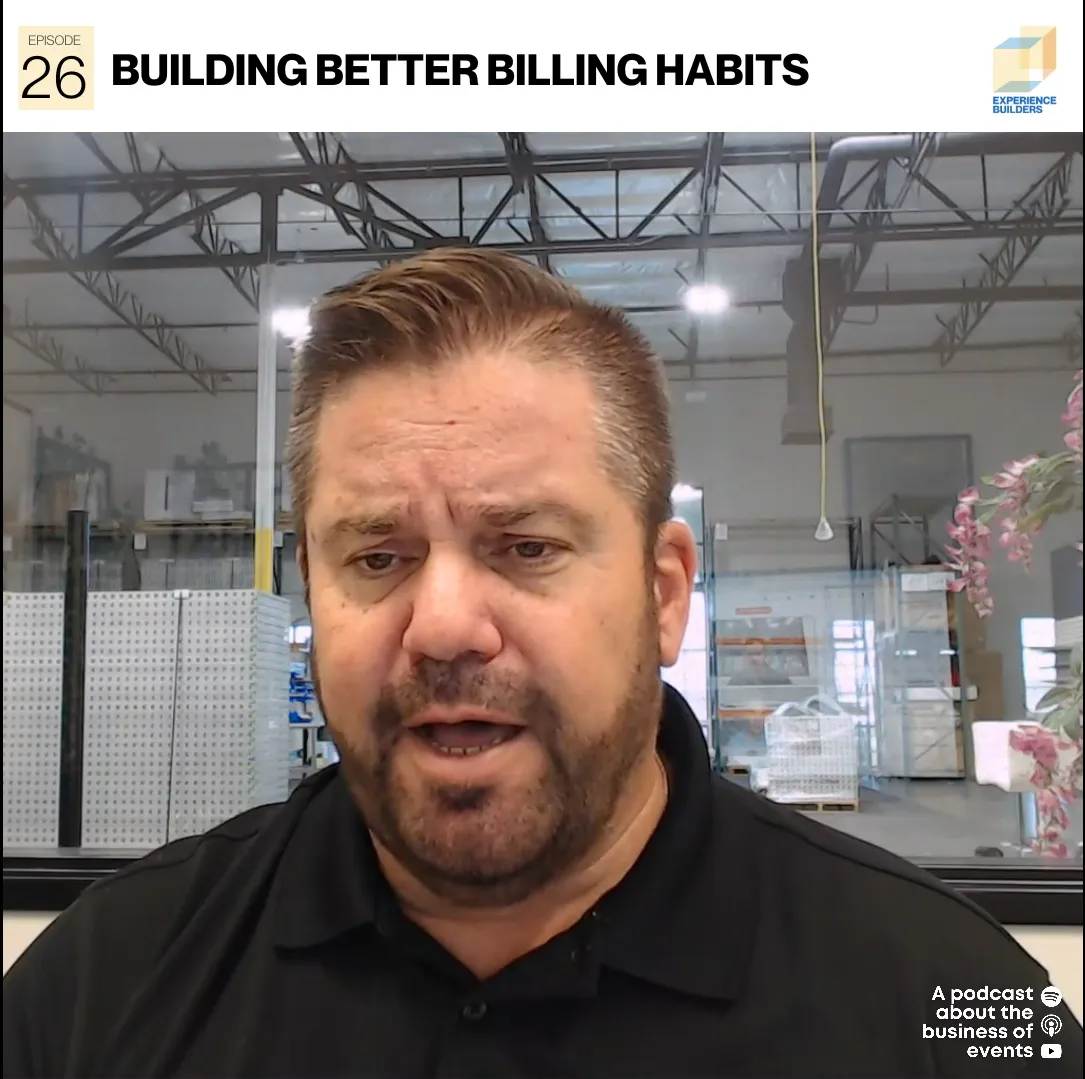submitted by Messe Dusseldorf
“Systemically Relevant for Economy and Society”
Wolfram N. Diener, President & CEO of Messe Düsseldorf, officially assumed his role as Incoming President of The Global Association of the Exhibition Industry (UFI) on November 19, 2025, during the 92nd UFI Global Congress in Hong Kong. Together with current UFI President Panittha Buri (Vice-Chairperson, Bhiraj Buri Group, Thailand) and Outgoing President Hugh Jones (CEO, RX, United Kingdom), he forms the association’s Presidential Trio. The official handover of the presidency will take place at the 93rd UFI Global Congress in November 2026 in Bahrain.
In this interview, he discusses the significance of trade fairs as stable platforms in an increasingly fragmented global economy, the current sentiment in the global market, and the opportunities that AI offers to the industry.
Question: You will take over the UFI presidency in 2026. Which topics would you like to advance?
Wolfram N. Diener: Trade fairs are under geopolitical and economic pressure and are often underestimated in their importance – even though they are systemically relevant for the economy and society. They therefore require greater public recognition and political support from the outside as well as transformation from within. I want to strengthen public awareness of the value of our industry by making even more visible what trade fairs achieve: In a world that is increasingly drifting apart, we bring market participants together, remain a place of civil exchange, make products tangible, and build trust in dynamic times.
It is more important than ever that we, as an industry, speak with one voice – whether organizers, venue operators, or service providers. UFI creates understanding for these different roles and promotes shared interests. I would like to further sharpen this unifying profile.
Moreover, we must become even more active where the economy needs us most: in dynamic markets and at the interfaces of global exchange. That’s why I will advocate for gaining more members in developing and emerging economies – to shape a global exhibition industry that is collaborative, forward-looking, and impactful.
Question: The global economic situation is tense. How does this affect the trade fair industry?
Wolfram N. Diener: The exhibition industry is a seismograph for the world economy. International crises are currently putting companies under pressure – and this is noticeable at trade fairs. Since the three largest markets – the USA, Germany, and China – expect a stable to declining trend according to the latest UFI Global Barometer, there is no general sense of euphoria. What’s important now is to emphasize the USP of trade fairs: They create spaces for dialogue and cooperation – even when other channels are blocked.
A positive sign: around one-third of trade fair companies worldwide expect growth of five percent or more in 2025, and many are optimistic about the coming years. The most positive outlook can be found in growth markets such as Brazil, India, Malaysia, Mexico, Saudi Arabia, and the United Arab Emirates.
What I find even more significant, however, is that our industry not standing still and waiting for developments – it’s taking action. Eight out of ten companies are planning new activities, six out of ten are already working actively on AI applications in their daily operations, and four out of ten exhibition companies intend to expand their workforce by the end of the year.
Question: Artificial intelligence is an important driver for the further development of the exhibition industry. Where do you see the greatest benefits?
Wolfram N. Diener: AI becomes particularly valuable where large amounts of data, complex processes, and individual needs converge – this is exactly the case in the exhibition business. Already, almost two-thirds of trade fair companies use AI tools in their daily operations to work more efficiently. The industry is neither a pioneer nor a laggard – but it is definitely in transition.
Three areas are particularly important: First, AI offers entirely new possibilities for personalization – for example, through intelligent matchmaking tools or tailored communication with visitors and exhibitors. Second, optimized logistics, more precise space utilization, and reduced CO₂ emissions enable more sustainable planning and implementation of events. And third, AI naturally gives rise to new digital services that allow us to create innovative trade fair experiences.
Much of this can be implemented directly and independently by organizers in their operational processes – and many are already doing so. For more complex applications, specialized technology partners will certainly be needed. But one thing is clear: a successful AI strategy can only emerge from the interplay between deep industry expertise and technological know-how.
The Global Association of the Exhibition Industry (UFI)
UFI was founded in 1925 as a non-profit, nonpartisan, and international association. Today, it is the global association for the exhibition industry, directly representing more than 50,000 exhibition industry professionals in 90 countries around the world. UFI is headquartered in Paris, France, and operates five regional offices in Asia, North America, Central and South America, Europe, and the Middle East and Africa.
The Messe Düsseldorf Group
Messe Düsseldorf is among the most successful trade show organizers worldwide. It hosts around 40 trade shows, including 20 leading international ones, at its 613,000-m² exhibition center in Düsseldorf, Germany. Across 18 halls, international market leaders and top decision-makers of various sectors get together every year in order to present and discover innovations, to exchange ideas and to network. Messe Düsseldorf’s sectors of expertise include: “Machinery, Plants and Equipment,” including metallurgy and foundry technology (inter alia drupa, K, interpack, glasstec, wire and Tube); “Retail, Trades and Services” (EuroShop, EuroCIS, ProWein); “Health and Medical Technology” (MEDICA, COMPAMED, REHACARE, A+A); “Lifestyle and Beauty” (BEAUTY, TOP HAIR); “Leisure” (boot, CARAVAN SALON); and “Mobility” (XPONENTIAL Europe, Flotte!). Completing this lineup are numerous conventions, corporate events, conferences and meetings by subsidiary Düsseldorf Congress. Abroad, Messe Düsseldorf organizes more than 80 events. The corporate group’s global network encompasses 78 international representation for 142 countries and nine international subsidiaries.



